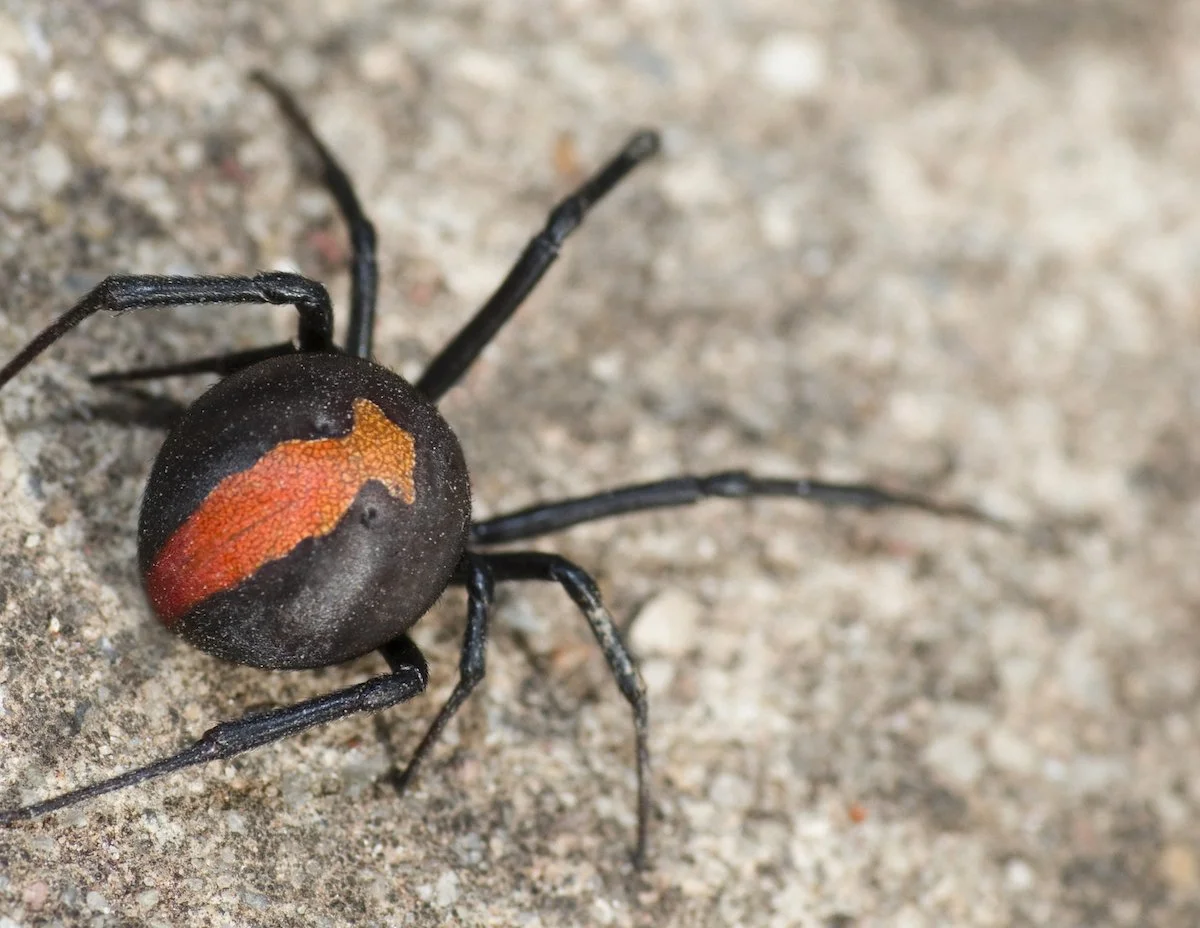Spider Control Gold Coast Pest Services
Specialist spider control from the experts
Although spiders are generally viewed as beneficial creatures keeping other creepy crawlies at bay, a number of our most common spiders have quite painful bites, which often require medical treatment. So if you have small children and pets at home or are a bit of an arachnophobe yourself, you will want the spiders gone! Gold Coast Pest Services have a specialist spider control treatment which has proven successful over the years...
How do Gold Coast Pest Services get rid of spiders?
Black house spider and web
Although our general pest control treatment deals with minor spider issues, if you have a particular spider problem you may need our specialised spider treatment. This treatment uses a specialist spider spray to treat the outdoors surfaces of buildings (especially the eaves and window / door frames) and any cracks and crevices where spiders may be hiding around the yard (fences, sheds and play equipment). This treatment targets web-building spiders such as the redback and black house spiders.
How our spider treatment works...
The spray leaves residual insecticide on the surface of treated areas. When the spiders crawl across the surface, they pick up the insecticide and their fate is sealed. After a treatment, leave any webs in place for a day or two to make sure the spider comes out of their hiding place on to the treated web. Once the spiders have been controlled, remove the webs by brush. DON'T blast the webs away with water – this will wash the treatment away, losing the benefits of long-term protection. With the surface treated, it will prevent spiders building webs around your house for many months.
Our spider treatments include a 12 month warranty on web-building spiders
Web-building spiders v running spiders
Huntsman spider
Although our treatments are highly effective on web-building spiders (redback and black house spiders) it is less effective on running spiders such as huntsman and white-tailed spiders. These spiders walk on the very tips of their legs and do not always pick up a lethal does of insecticide when walking on treated surfaces. No matter what anyone tells you, there is no 100% guarantee to stop these spiders entering your home.
HOWEVER, by carrying out a spider treatment targeting web-building spiders you can reduce the number of running spiders. Black house spiders are the favourite food of white-tail spiders, so if you eliminate the black house spiders, the white-tail spiders look elsewhere for food. The combination of a specialist treatment, good insect screens and prevention tips (see below) should make the appearance of a running spider inside a rare occurrence.
Give our friendly staff a call to book a spider treatment and protect your family and pets
What our customers say…
How to keep spiders out of your home?
As spiders like to hide in mulch and vegetation, keeping garden beds away from the edge of the house will significantly reduce the spider population.
If garden beds next to the house are retained it is important to keep vegetation trimmed back from the edge of the house and paths. This will prevent garden spiders building their large webs across paths.
Remove piles of wood and waste material around the house – a favourite hiding place for redback spiders.
If the occasional spider gets in, keep clothes and shoes off the floor to reduce spider hiding places. White-tailed spiders and huntsman spiders tend to come inside to escape the summer heat. Clothes on the floor are cool, dark places to hide and are similar to their natural hiding places under logs and bark.
Of course, well-fitted insect screens will prevent any unwanted visitors in the first place.
More spider information
Spiders are not insects but arachnids; insects have 6 legs and three body segments, spiders have 8 legs and two body segments. Although many view spiders as scary, spiders are generally beneficial creatures as they help keep the insect numbers down. However, there are a number of spiders in Australia which can give nasty bites, which are a particular concern for young children and pets.
There are 6 common spiders in Australia that cause most of the problems / bites:
Redback spider: Redbacks live in dry sheltered sites, under rocks and logs, in tubular fencing, in roof voids… in the outside dunny! The female redback will often eat the much smaller male spider after mating.
Huntsman spider: Huntsman spiders tend to live under rocks and bark (hence their very flat body shape, which makes them very adept at squeezing into cars!).
Funnel-web spider: Tends to live in sandy soils in moist areas, under rocks and logs. The males go wandering to find a female mate in autumn and often come into houses (and hide in shoes) or fall into swimming pools (where they can survive for several hours underwater from air bubbles trapped on their hairs).
White-tailed spider: Prefers cool moist locations, such as the mulch in garden beds. Will come inside in summer to escape the heat, often hiding in sheets and clothing on the floor. Their favourite food is black house spiders.
St. Andrews cross spider: St. Andrews cross spiders live in trees and bushes, often building significant webs that can span up to a meter or more – very annoying when they cross paths around the house.
Black house spider: Normally found under rocks and in trees but is well adapted to building webs around the home, especially around windows, doors and eaves.
More Gold Coast Pest Control services.







